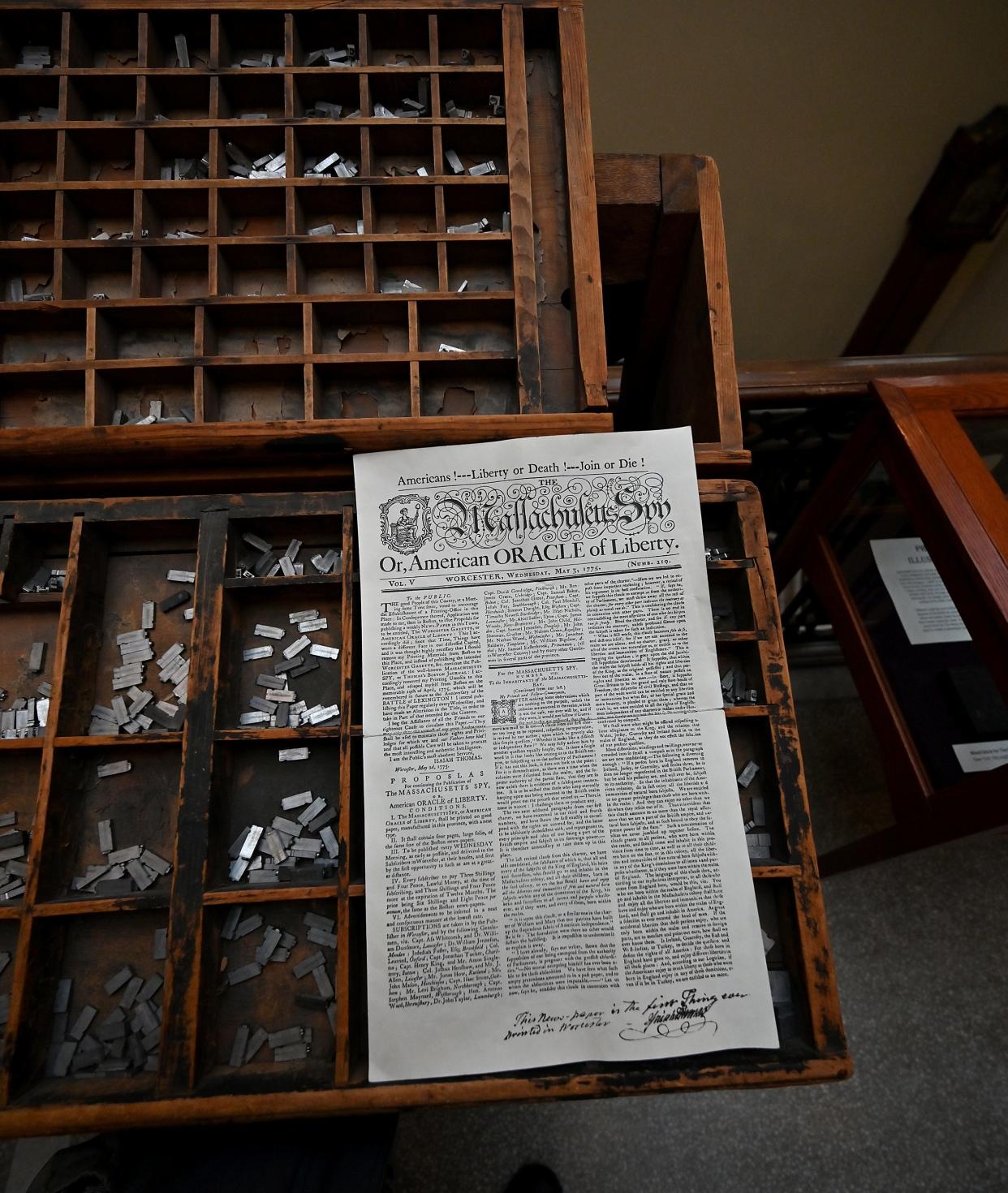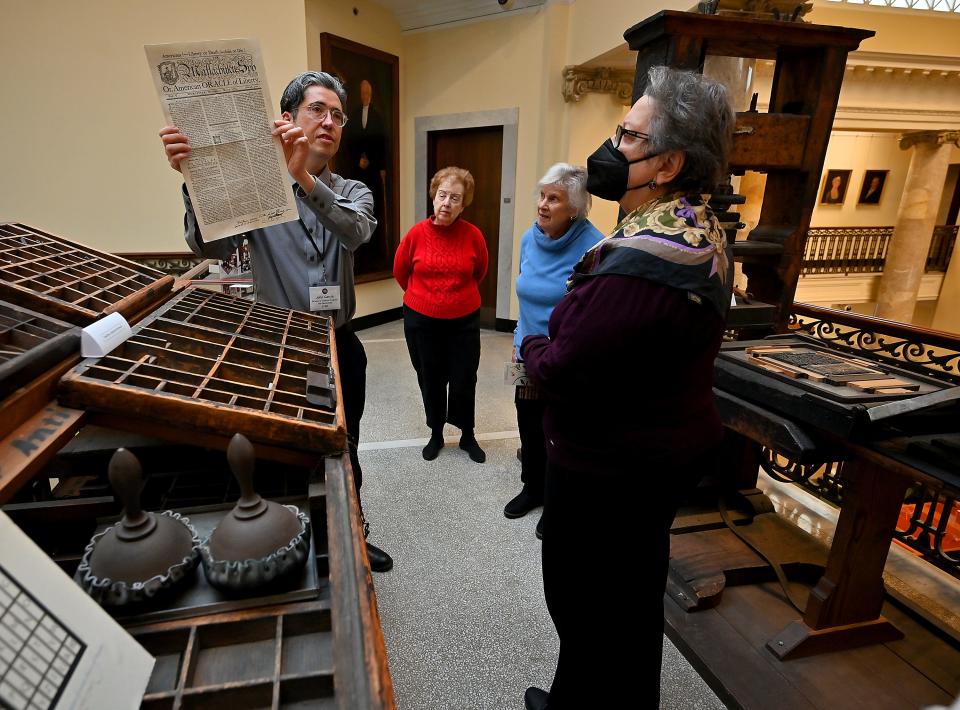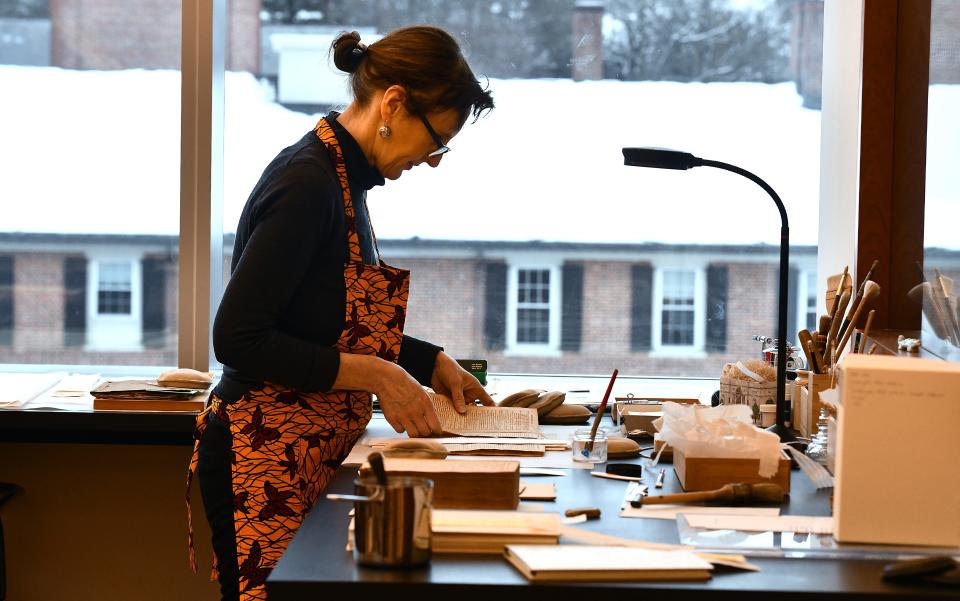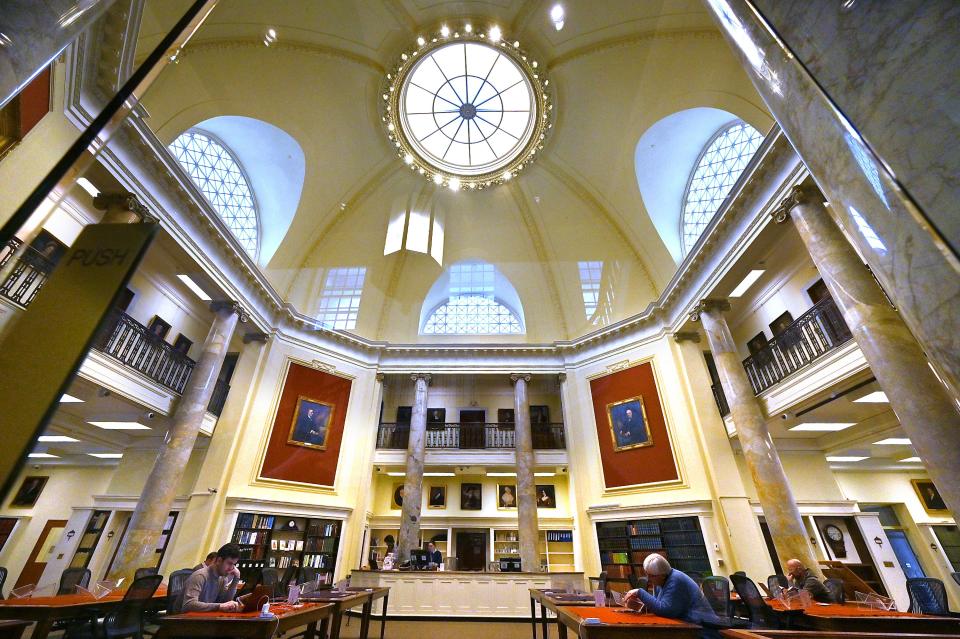Worcester County Wonders: A treasure trove of American history in our own backyard

WORCESTER - If you were to learn Worcester is home to one of the largest collections of written work involving American history, one that rivals even the Library of Congress, would you believe it?
For the last 200 years, the American Antiquarian Society on Salisbury Street has been working to preserve our nation’s history, right in Worcester’s backyard. In fact, the organization stores about two-thirds of everything printed on a printing press in the United States from 1640 up until about 1820.
"It has something for everyone truly," said John Garcia, director of scholarly programs. "There really are an infinite number of stories hidden here."
With 4.5 million individual items carefully preserved in what's known as "the stacks," researchers, history buffs and visitors from around the world make the trek to Worcester to see the collection for themselves.
"When you think of a national research facility, you may think, boring," said Garcia, who first began working for the antiquarian society as a researcher a decade ago. "But this is far from that."

Founded in 1812 by Revolutionary War patriot and well-known printer Isaiah Thomas, the American Antiquarian Society is home to the largest collection of written work, including books — pamphlets, broadsides, newspapers, periodicals, children’s literature, music and graphic arts — printed in the United States, prior to the 20th century.
Ahead of the Revolutionary War, Thomas's beloved printing shop was labeled as a “sedition foundry,” and he often found himself on the wrong side of the law. Thomas was urged to move his printing press from Boston “for safe keeping inland.” He sent the press, so lovingly called “Old Number One,” to Worcester just three days before the Battles of Lexington and Concord kicked off the American Revolution.
Once the war was won, Thomas became the most successful printer, publisher and bookseller in the new nation, becoming one of the wealthiest men in the country. When Thomas founded the American Antiquarian Society, his own collection served as the foundation.
Last week Worcester County Wonders: A treat of a time at Hebert's Candy Mansion
Now, 212 years later, the antiquarian society has collected more than 4.5 million works and remains the most accessible research library in the country. Antiquarian Hall was named a National Historic Landmark in 1968. In 2013, President Barack Obama presented the antiquarian society with the National Humanities Medal. In 2019, the organization opened a state-of-the-art conservation lab, where materials are cleaned, restored and preserved for generations to come.

Standing on the cold glass floor of "the stacks," the smell of old paper, leather binding and unlimited adventure seems to permeate through the 25 miles worth of written work. The air-conditioned room aids in the preservation of America's history, including the first Bible printed in the United States, which was actually written in the Wampanoag language, between 1661 and 1663.
Aside from some 2,500 Bibles, notable items within the collection include paper dolls, lottery tickets, cigar labels, jail records, board games and a plethora of manuscripts, including a collection of books by Phillis Wheatley Peters.
In the late 1700s, Wheatley Peters became as the first enslaved Black woman and the third woman in American history to publish a book of poems. The Wheatley Peters collection is one of the most heavily used within the antiquarian society, with researchers visiting from around the globe.
The collection not only continues to expand but new discoveries within the society's archives are also being revealed. Recently, a researcher reported that he believes he discovered about 20 stories and poems written by Louisa May Alcott, some under both her own name and some under a pseudonym, for several local newspapers in the late 1850s and 1860s.

The Research Library is free and open to anyone 18 and older; visitors must only create an account to access books. Unlike borrowing from a traditional library, the antiquarian society does not allow any materials to leave the premises. Instead, members request reading materials online, then a member of staff will retrieve the item from "the stacks" and bring it to the visitor in the reading room.
Thanks to Katie for her suggestion of the American Antiquarian Society for this edition of Worcester County Wonders.
T&G engagement editor Sarah Barnacle is getting to know Central Mass. by exploring some of the best places to go and things to do in Worcester County. If you have an idea or suggestion, please email sbarnacle@gannett.com.
This article originally appeared on Telegram & Gazette: American Antiquarian Society, preserving history one page at a time

